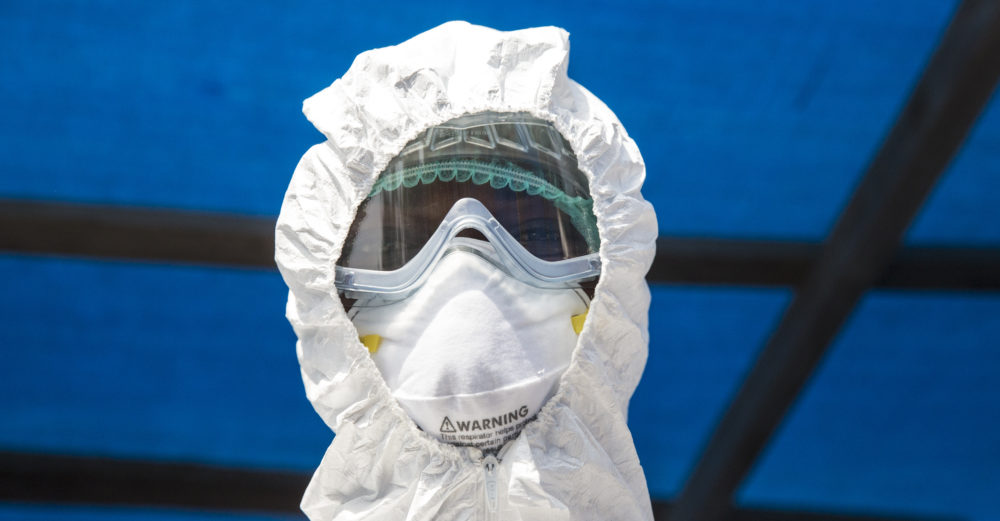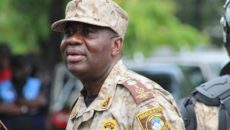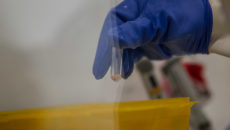Last year, Time magazine’s Person of the Year honor went to an entire group of people: The Ebola Fighters. In its article announcing the award, the magazine told the stories of dozens of courageous men and women on the front lines in the battle against Ebola. I’d like to tell you the story of one more: Janet Teasley, a registered nurse from Chicago who risked it all to help her people “back home” in Liberia.
A close friend of mine introduced me to Teasley while she was still in Liberia. She was working as a nurse for an organization called AmeriCares, a federally contracted nonprofit organization that recruits health care workers in the United States to help contain the spread of the deadly Ebola virus in West Africa. I first spoke with her briefly over the phone and immediately felt the passion in her voice and admired her courage as a nurse. In the fight against the deadly disease that had been devastating the lives of the Liberian people for months with no sign of letting up, she was all-in.
In fact, Teasley gave up everything as a nurse in Chicago to travel to Liberia to treat Ebola patients. Not only did she leave a secure job and family behind, but her mission took place at a time when healthcare workers were at a high risk of being infected.
“I Went to Help My People”
This was the largest Ebola epidemic in recorded history in West Africa and health care workers were at an increased risk for contracting the virus.
Data released by the Centers for Disease Control around the time of Teasley’s decision revealed that as of mid-August 2014, Liberia had 810 reported cases of Ebola, including 10 clusters of Ebola cases among healthcare workers who worked in non-Ebola treatment units.
Ninety-seven Ebola cases (12 percent) had affected health care workers. Of these, 64 percent were from these non-Ebola treatment unit clusters. Infection control at the time was inadequate, and health care facilities were overrun with patients. Meanwhile, personal protective equipment and available trainings were also deemed insufficient.
In its Morbidity and Mortality Weekly Report published November 14, 2014, the Centers for Disease Control explained that the short-term consequences of Ebola among healthcare workers included “the closure of health facilities, loss of routine services, grief and fear among HCWs, and public mistrust of HCWs and health facilities, all of which might undermine the epidemic response.†Long-term consequences include “the loss of a sufficient and experienced HCW workforce to provide health services and educate future HCWs.â€
Teasley was not deterred. As she likes to say, “I went to help my people.â€
Teasley had previously traveled to Africa on medical missions: first to Botswana to conduct HIV research and again to Ghana to deliver medical equipment. Though her first two missions were grueling in their own ways, her life was not on the line as it was with this mission.
Stationed in Buchanan, a two-hour drive from Monrovia, Teasley trained local nurses at the Ebola treatment center. In all, Teasley spent about eight weeks deployed in one of Liberia’s Ebola hot spots. At the end of the outbreak in Liberia, Ebola had infected 378 healthcare workers, and 192 of them died.
According to The Economist, 11,020 people have died from the Ebola outbreak as of May 3, 2015 worldwide – with the vast majority of cases and death occurring in Guinea, Sierra Leone, and Liberia. Incidentally, Liberia was declared Ebola free on May 9, 2015.
After returning to the U.S., Teasley and I spoke for an hour about her journey and time in Liberia. She was quick to point out that her story is by no means unique though I beg to differ. She says that she was but one of many American health care workers who risked their lives to help contain the fearsome Ebola virus.
Teasley also expressed her love for Liberia, its history, and the people she came in contact with — especially the young people who had great ambitions but little hope of ever reaching their full potential.
“Feeling at Home”
Teasley shared a story about a couple she met in Buchanan, who happened to share her maiden name, Bryant. When she showed the couple a picture of her father, the husband could not help but notice the striking resemblance to that of his father. A kinship between Teasley and the Bryant couple immediately sparked. In fact, while still working in Buchanan, a member of the Bryant family gave birth to a baby girl and named her Janet, an incredible honor and reflection of the impact Teasley made during her 8 weeks in the country.
The encounter with the Bryant family and the people she met in Buchanan has inspired Teasley to contact a DNA ancestry tracing service. She hopes to trace her DNA to Africa and especially hopes to trace it to Liberia. Newly awakened, Teasley intends to return “back home to Buchanan†and give back to her people once again.
In the meantime, we are lucky to have her back at home in Chicago.
Featured image courtesy of United Nations Photo



